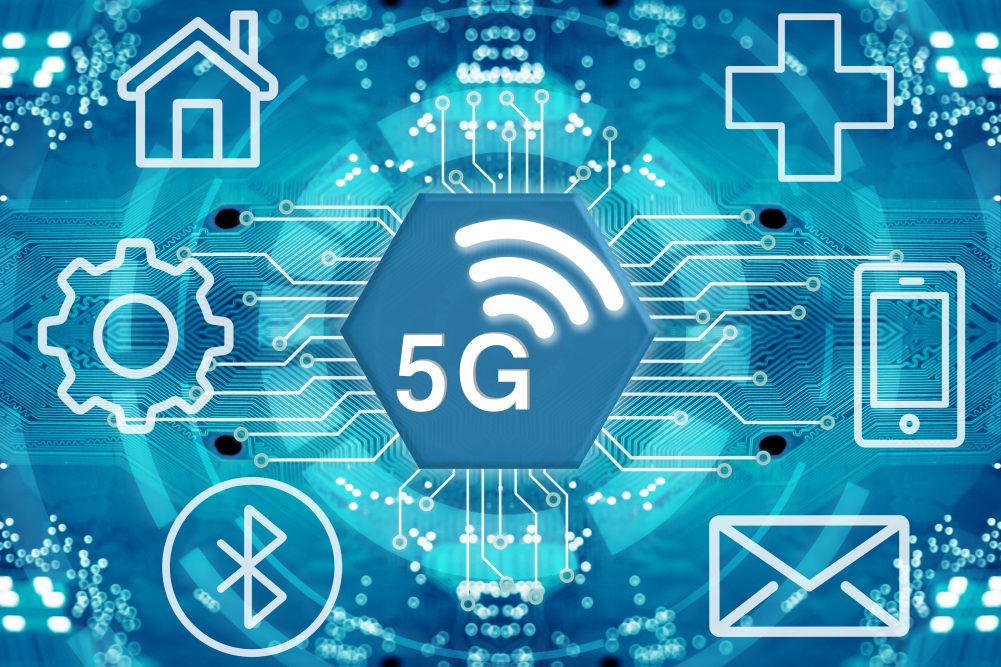Rise by Six: Your Daily Dose of Inspiration
Explore insights and stories that elevate your day.
5G: The Invisible Revolution Connecting Our Lives
Discover how 5G is transforming our world, connecting lives in ways you never imagined. Join the invisible revolution today!
How 5G Technology is Transforming Communication and Connectivity
The advent of 5G technology is revolutionizing communication and connectivity across the globe. With its unparalleled speed and low latency, 5G enhances real-time communication, enabling seamless video calls, instant messaging, and smooth online gaming experiences. This new generation of wireless technology allows for faster download and upload speeds, which is vital for businesses and individuals alike. As a result, organizations can improve their workflows and productivity, while users can enjoy uninterrupted access to the latest digital services and applications.
Moreover, 5G technology is paving the way for the Internet of Things (IoT), connecting a multitude of devices and systems. In this new ecosystem, smart homes and cities can communicate with their inhabitants, delivering unparalleled convenience and efficiency. For instance, 5G enables smart traffic management systems to optimize traffic flow, reducing congestion and improving air quality. As the world becomes increasingly interconnected, the implications of 5G technology extend beyond communication, driving innovation in various sectors such as healthcare, education, and entertainment.

The Impact of 5G on Smart Cities: Connecting the Future
The advent of 5G technology is set to revolutionize the concept of smart cities, facilitating a level of connectivity that was previously unimaginable. With its ultra-fast data transfer rates and low latency, 5G allows for seamless communication between various IoT devices, enabling real-time data collection and analysis. This connectivity not only enhances public services such as transportation and energy management but also significantly improves residents' quality of life. As cities embrace 5G, they will be able to implement advanced solutions like smart traffic systems, pollution monitoring, and more efficient emergency response services.
Moreover, the impact of 5G on smart cities extends beyond mere connectivity; it fosters innovation and economic growth. By attracting tech companies and startups, cities equipped with 5G infrastructure can create a thriving ecosystem for digital services and applications. This will lead to job creation and a boost in local economies. Furthermore, the integration of 5G technology with disruptive technologies such as artificial intelligence and big data analytics will empower city planners and policymakers to make more informed decisions, thus paving the way for a smarter, more sustainable urban future.
Is 5G Safe? What You Need to Know About Health Concerns
The advent of 5G technology has sparked significant debate regarding its safety and potential health impacts. As this next generation of mobile connectivity promises faster speeds and more reliable networks, concerns have been raised about the effects of increased exposure to radiofrequency radiation. Health organizations and scientists continue to evaluate the long-term effects of 5G on human health, examining claims that it could lead to various health issues, including headaches, sleep disturbances, and even more serious conditions. It’s essential to stay informed and understand the current scientific perspective on these matters.
According to industry experts and many health authorities, including the World Health Organization (WHO), 5G is considered safe when deployed within established guidelines. They emphasize that the radio waves utilized in cellular technology are non-ionizing and do not carry enough energy to damage DNA or cells directly. To alleviate public concerns, various countries are implementing ongoing research and monitoring efforts to ensure that 5G networks operate within safe exposure limits. As new studies emerge, it's crucial for consumers to seek reliable information and approach the subject with an open mind, balancing technological advancement with health considerations.